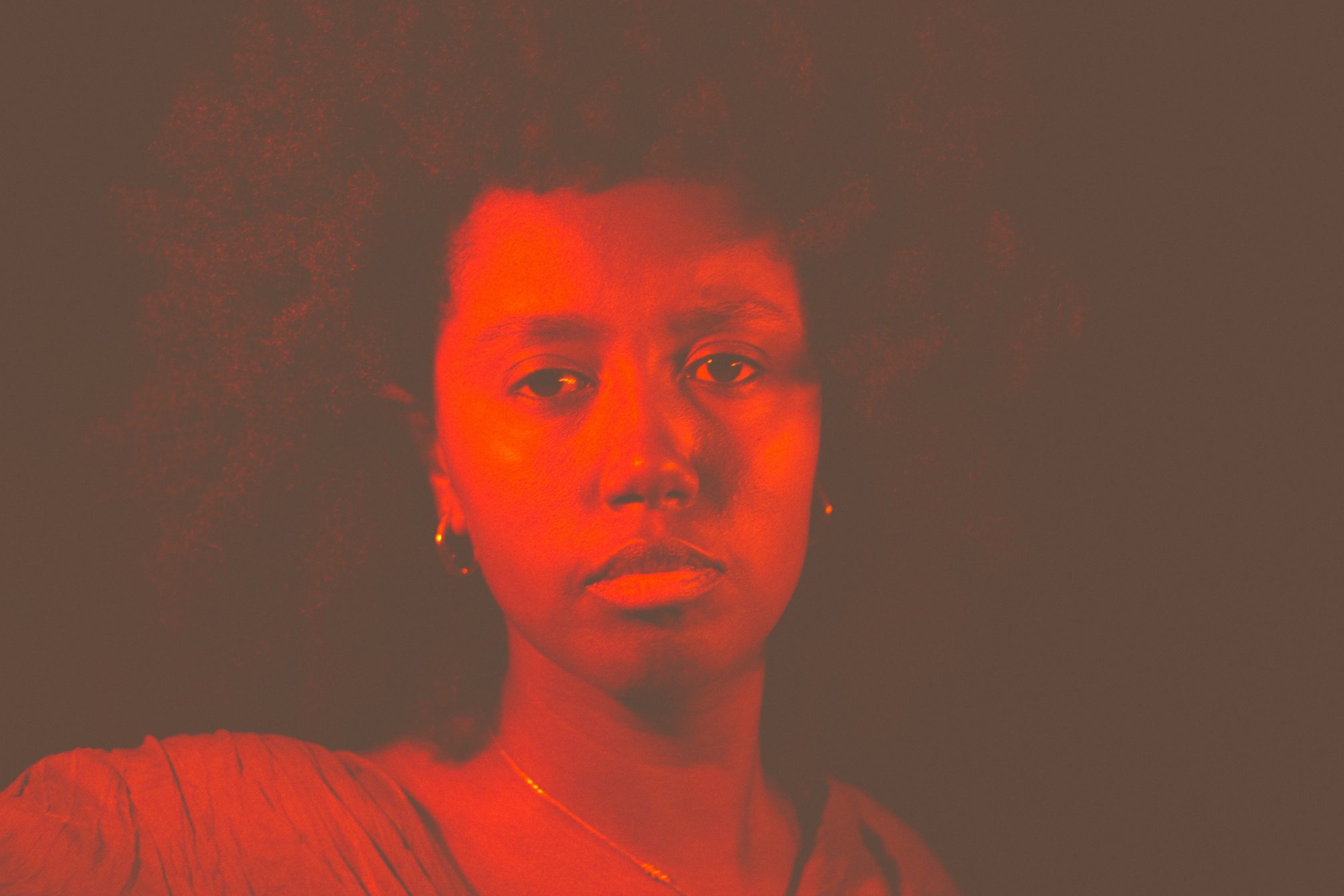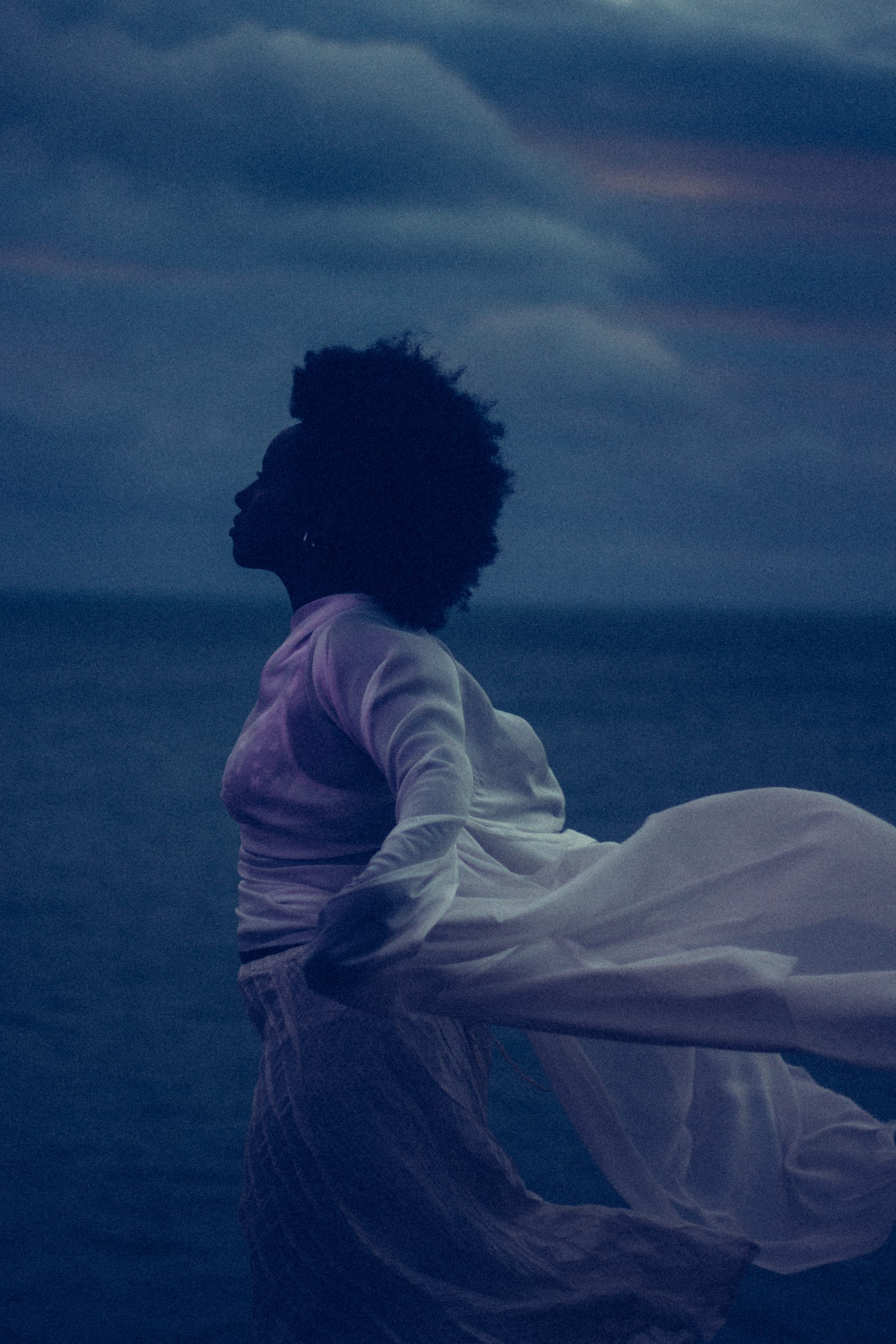 INTERVIEWS
INTERVIEWS
Nū on finding soul and liberation in live coding
The Ethiopian-Australian sound artist and vocalist is one of the few Australian producers pushing the boundaries of music through code in her new release, ‘TECHNIFRO-185’.
For Fetle Wondimu, aka Nū, transitioning from a stable career in youth consulting to full-time music was a slow burn, guided by gut instinct and a deep sense of calling.
“I didn’t want to be working nine to five,” she shares.
“I actually loved working with the youth and doing workshops. It was fulfilling and gave me purpose. But the dream has always been music.”
When Fetle discovered live coding, she quickly realised that it wasn’t just a technical revelation. It gave her a way to process grief, diaspora, dreams, and a desire to make music that matters, through a programming language called Sonic Pi.
She then began bending code into sonic worlds that felt deeply soulful and human. What emerged was a practice grounded not just in experimentation, but in healing.
Her debut EP, ‘TECHNIFRO-185’, is out on April 25 via Highly Contagious and is a five-track bilingual Afrofuturist offering that blends ancestral sounds, experimental synthesis, and voice-led improvisation.
Farah Azizan caught up with the Naarm-based artist to talk about code as creative liberation, why the process of sound structures of coding can be freeing, and the imagined world of ‘TECHNIFRO-185’ — “a beautiful effervescent pond amidst a magical forest on the sentient planet.”

RAH: Let’s start from the beginning. Tell us about your first encounter with live coding.
Nū: It was back in 2021 at a group show by my friend Charlotte. An artist named Tash Atkins was doing an opera and live code performance —it was just two lines of code projected during the show, but the ambient sounds it created were unreal. I was like, ‘how is this even possible?’
She encouraged me to download Sonic Pi, and that was it— I have since been in a deep spiral of learning stuff. My background is in science, and I studied maths at uni. So the coding side came a bit easier to me, and it just...clicked.
RAH: I actually went for my first live coding show in Bangkok at synap.home.lab, with zero expectations and was blown away by the whole experience. It is so engaging and fascinating, and also baffling in a good, mind-blowing way.
Nū: Yeah, it’s crazy! Asia’s got popping live coding scenes, Bangkok, Taiwan, China and Japan as well. But yeah, I was really drawn to how immersive it can be, like it gives the audience something to look at and engage with.
RAH: Personally, I’ve been intimidated by the science and concept behind live coding, only because it's so foreign. It's actually so intimate and warm.
Nū: Totally. I think the science behind one of the first kinds of music synthesis was literally someone typing code to generate a sound wave. So in a way, it’s been around for ages. But the way it’s being used now—as performance art in front of an audience—feels really new and exciting.
RAH: Speaking of science, that was what you studied, with a major in math, different from the creative journey you’re on now. Was music something you were always drawn to, even when it wasn’t “the plan”?
Nū: Yes. I’ve been singing for as long as I can remember—mostly in hiding. Growing up in Footscray, my family runs Ras Dashen Ethiopian Restaurant, and music was always in the background: Ethiopian jazz, pop, instrumental stuff.
A creative degree wasn’t really an option. Financial stability was everything for my family, so the only real paths were doctor, lawyer, or engineer. I chose science and majored in math, but I took every music elective I could. It wasn’t until much later that I gave myself permission to really pursue it.
RAH: A blessing in disguise.
Nū: It really is, and education is a blessing that I’m grateful for. Apart from my coding, it also helps with creative problem solving, and has developed my interest in the intersection of art and technology.
RAH: In terms of production, what drew you to Sonic Pi over traditional tools like Ableton?
Nū: I did start out using GarageBand and eventually Ableton, shout out to Kuya Neil, who showed me the ropes - this was around 2020.
I also learned that Ableton overwhelmed me. It could do everything, and I’d just sit there, frozen (laughs). With Sonic Pi, there are constraints, but those constraints became liberating. I love structure, and the program has built-in loops, samples, and synths that give you direction.
I use a lot of randomisation in my code. Like, I’ll give it five samples and let the computer choose how to trigger them. It’s like having an improv partner on stage. Especially if I’m singing, I can’t be typing constantly—so the machine steps in and surprises me, so there is still that element of collaboration.
RAH: You’ve described ‘TECHNIFRO-185’ as deeply emotional. Can you tell us more about what inspired the EP?
Nū: I created a fictional planet called ‘TECHNIFRO-185’—a place that feels suspended in time, where healing is possible. In a way, I needed a world where my emotions could live and transform.
One of the tracks, ‘Tezetaye’ (music video here) is inspired by Mulatu Astatke’s ‘Tezeta’, which means ‘nostalgia’. ‘Tezetaye’ means ‘my nostalgia’. When I perform it, it makes me emotional every time—it’s an ode to everyone who didn’t believe in me, or who I’ve lost. The refrain—“Look how far I’ve come without you”—is a reminder of both grief and strength.
RAH: And your single ‘Angel’ also came from a personal place, right?
Nū: Yes! ‘Angel’ came from a dream I had after my grandmother passed. She appeared to me and said, in Amharic, “I had to say goodbye before I left.” It was such a spiritual moment. Years later, when I was improvising with Sonic Pi, the melodies just emerged, and they brought me back to that dream.
It’s one of the most meaningful songs I’ve ever made. The refrain—“We meet again in the water”—touches on that blurry space between goodbye and eternal connection. The track itself plays with minimalism and textural layering. It’s personal, but it’s also cinematic.
RAH: This narrative is so crucial in providing that soulful depth, which I experienced when listening to the EP. It was very meditative indeed. What was your creative process like in bringing the EP to life?
Nū: I usually start with live-coded improvisation—just seeing where the sound takes me. I use Sonic Pi to code loops, play samples, and layer vocals. Once I have the core, I record everything and then mix it with my friend Declan, also known as LOIF. The final mastering was done by Morgan Wright from Acopia. Both of them were really intentional about preserving the EP’s emotional depth.
There’s a mix of synthetic and organic elements—field recordings, Amharic vocals, jazzy sax lines, husky singing.
RAH: Any dream collaborators you’re hoping to link up with, someone you’re looking forward to meeting at the conference perhaps?
Nū: Absolutely! Alsoknownasrox is a Sonic Pi artist based in New York, who does live-coded jungle, and she’s just incredible. I’d love to create something together.
But mostly, I just want to connect with other artists at the conference. See how people are pushing the form, blending disciplines, using tech in soulful ways.
RAH: Final thoughts for people trying to make that creative leap?
Nū: There’s always time.
I go to music school now with people in their 40s and 50s. You’re never too late. I started this path during lockdown, with a math degree behind me and no formal music training. And here we are - chase your dreams!
_____________________________________________________________________
Nū's TECHNIFRO-185 EP Launch will be happening this Friday at Eastmint, featuring performances by Nū, Blood Lotus, Sachin de Silva.Farah Azizan is a freelance writer & DJ based in Naarm/Melbourne. Find her on Instagram.


